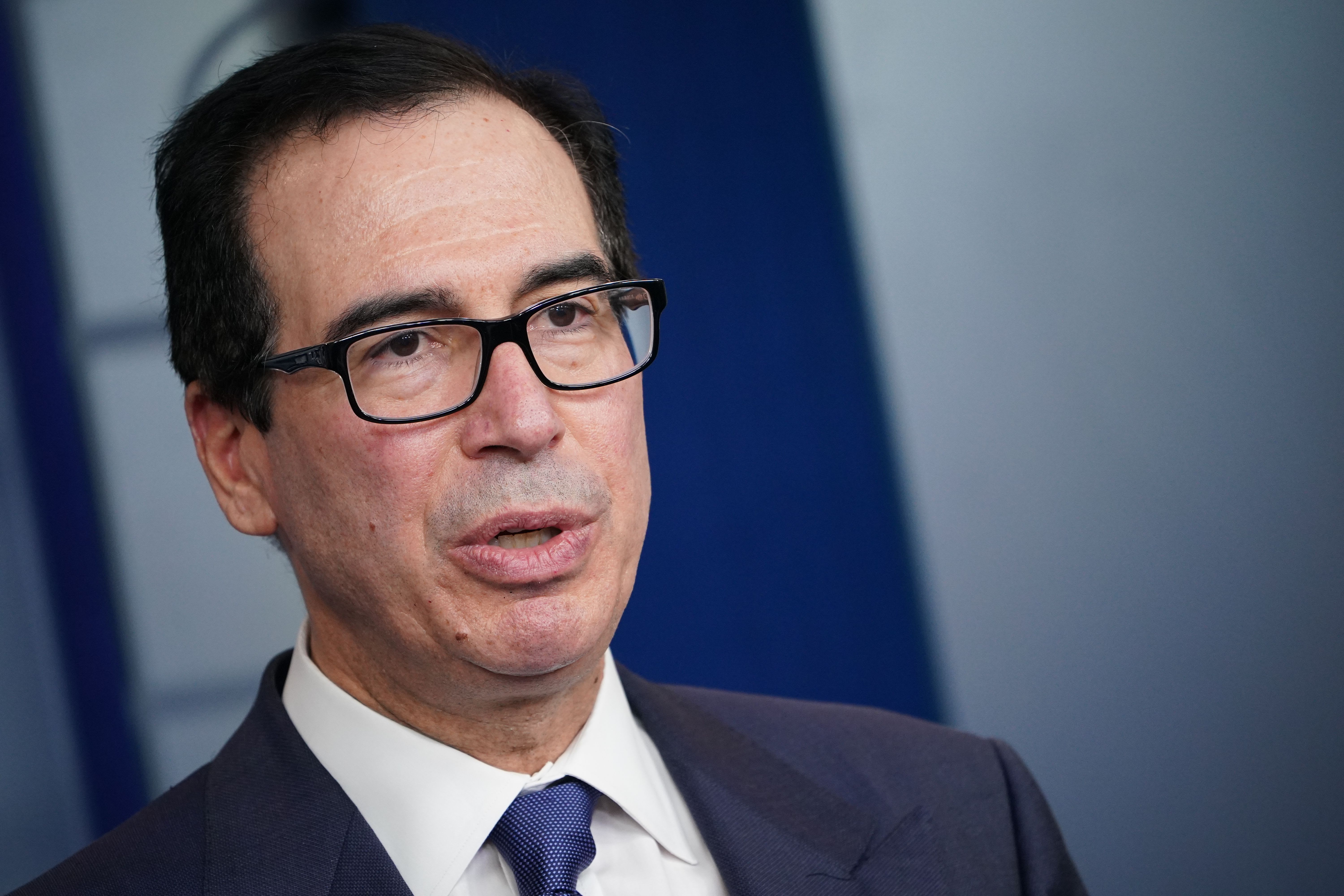
Treasury Secretary Steven Mnuchin told CNBC on Monday the administration is unfazed with the federal government’s historic $3 trillion in spending to combat the impact of the coronavirus thanks to the nation’s very low interest rates.
“One of the reasons I do feel comfortable with us spending all this money is because interest rates are very low. And we’re taking advantage of long-term rates,” he told CNBC’s Jim Cramer “on “Squawk on the Street.” Between 10 years, 20 years, and 30 years, we’re borrowing an awful lot of money long term so that we can lock in this $3 trillion for a very, very long period of time.”
Mnuchin said the Treasury would stop short of an actual refinancing where it bought back existing debt. He said the White House wants to seize the opportunity afforded by low interest rates in a sort-of “refinancing” without repurchasing existing Treasury notes from the marketplace.
“We obviously don’t want to disturb the markets too much, but we’re going to take advantage of refinancing all of our debt to make sure that we have very low rates. I think that’s something that’s a great opportunity for us,” he said. “I don’t think we need to buy back debt. … I think we have tremendous opportunities without having to buy back debt.”
The Treasury secretary’s comments came on the heels of historic government spending and emergency funding to help U.S. businesses cope with the fallout from the coronavirus pandemic.
President Donald Trump in March signed an unprecedented $2.2 trillion piece of legislation known as the CARES Act that included hundreds of billions of dollars in emergency funding for small businesses struggling through state-imposed commerce closures.
Governors from New York to California issued stay-at-home and business-closure orders throughout March in an effort to slow the spread of Covid-19, which has infected some 4.1 million worldwide and killed nearly 80,000 in the United States.
But the commerce halts in states throughout the U.S. have, in turn, sent the U.S. unemployment rate to its highest level since the Great Depression and put the nation on track for negative economic growth. The Commerce Department reported in late April that the U.S. GDP growth fell 4.8% in the first quarter, and many economists expected another decline in the three months ending June 30.
Long-term Treasury interest rates are trading near their lowest levels on record. The 10-year note yield was at 0.68% on Monday, down from 1.87% in December and north of 3% in 2018. The 30-year bond rate traded at 1.38%, down from 4.5% in 2011.
The combination of a significant spike in federal deficit spending and reduced tax revenues has forced the Treasury Department to think of new ways to help foster appetite for U.S. bonds. It announced last week that it will launch a new 20-year bond this month in an effort to fund a record $3 trillion in borrowing this quarter.
An auction on May 20 will feature a sale of $20 billion worth as part of an effort to push the record-setting debt levels further out in terms of duration.
“Treasury’s borrowing needs have increased substantially as a result of the federal government’s response to the Covid-19 outbreak,” Brian Smith, assistant secretary for federal finance, said Wednesday. “Over the next quarter, Treasury’s cash balance will likely remain elevated as Treasury seeks to maintain prudent liquidity in light of the size and relative uncertainty of Covid-19-related outflows.”
Subscribe to CNBC PRO for exclusive insights and analysis, and live business day programming from around the world.

